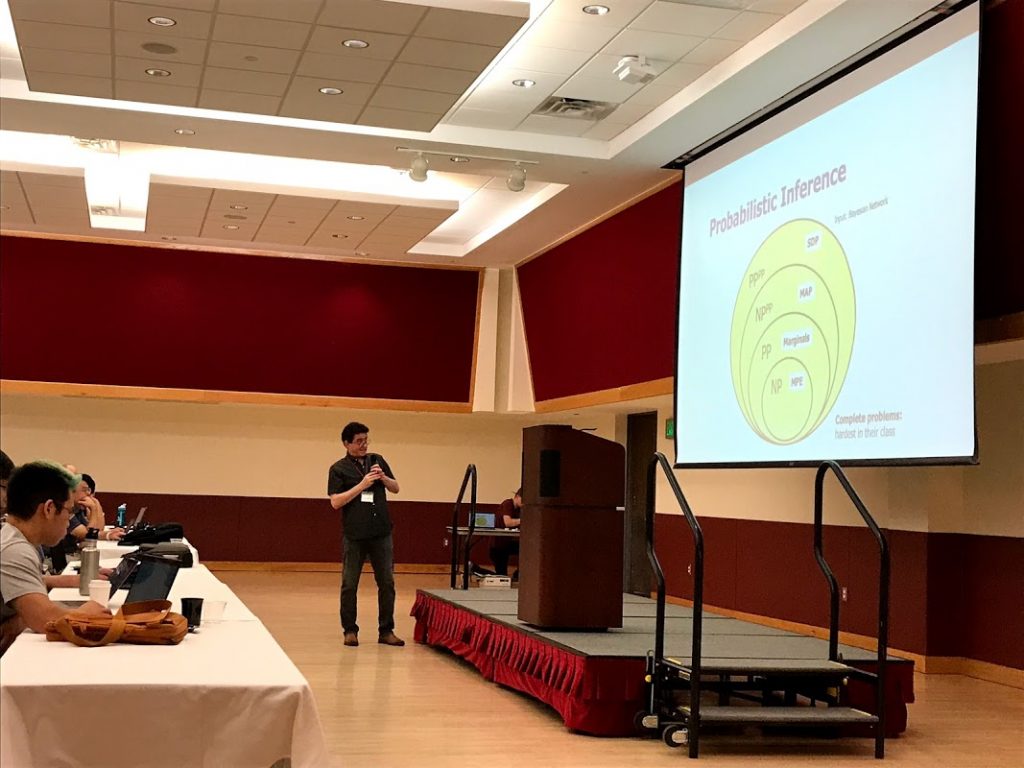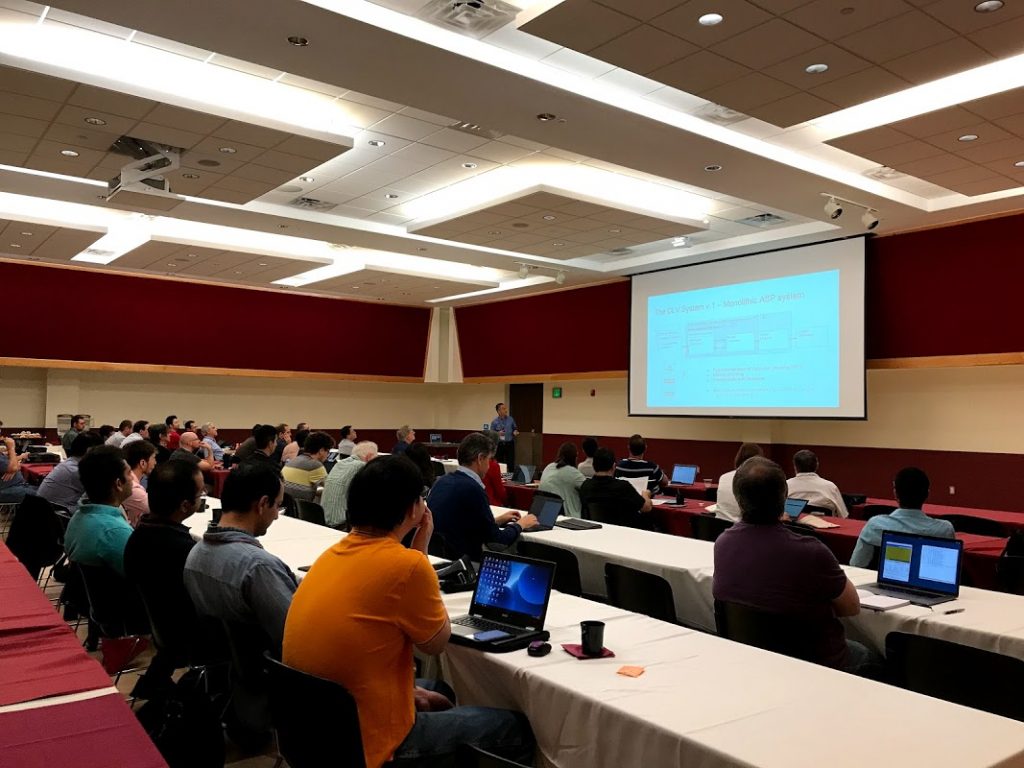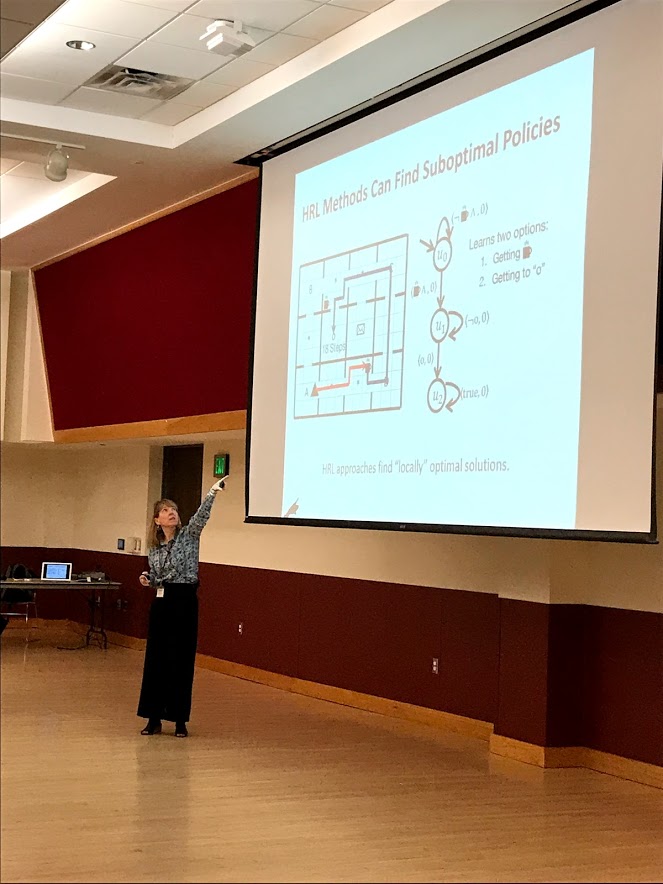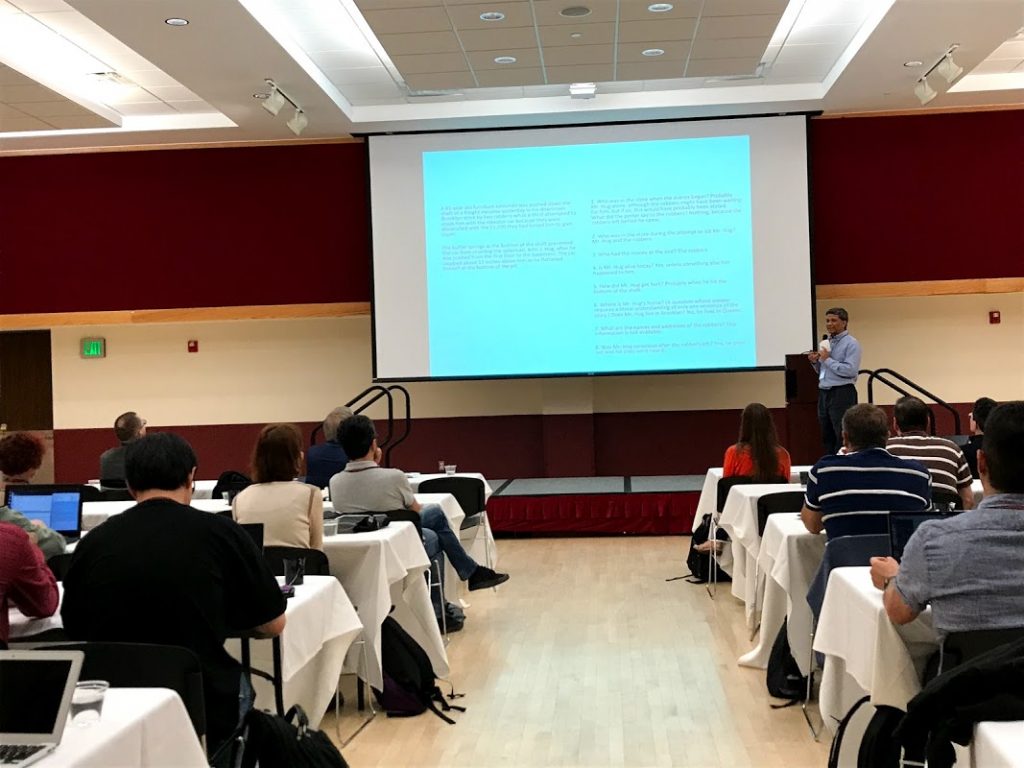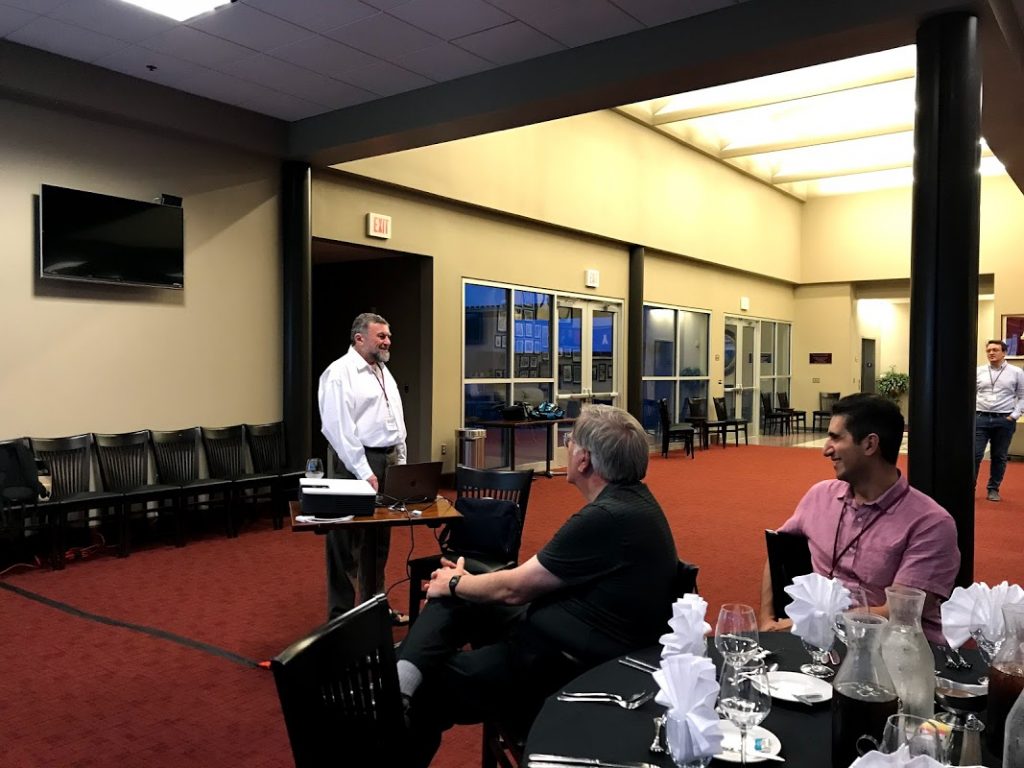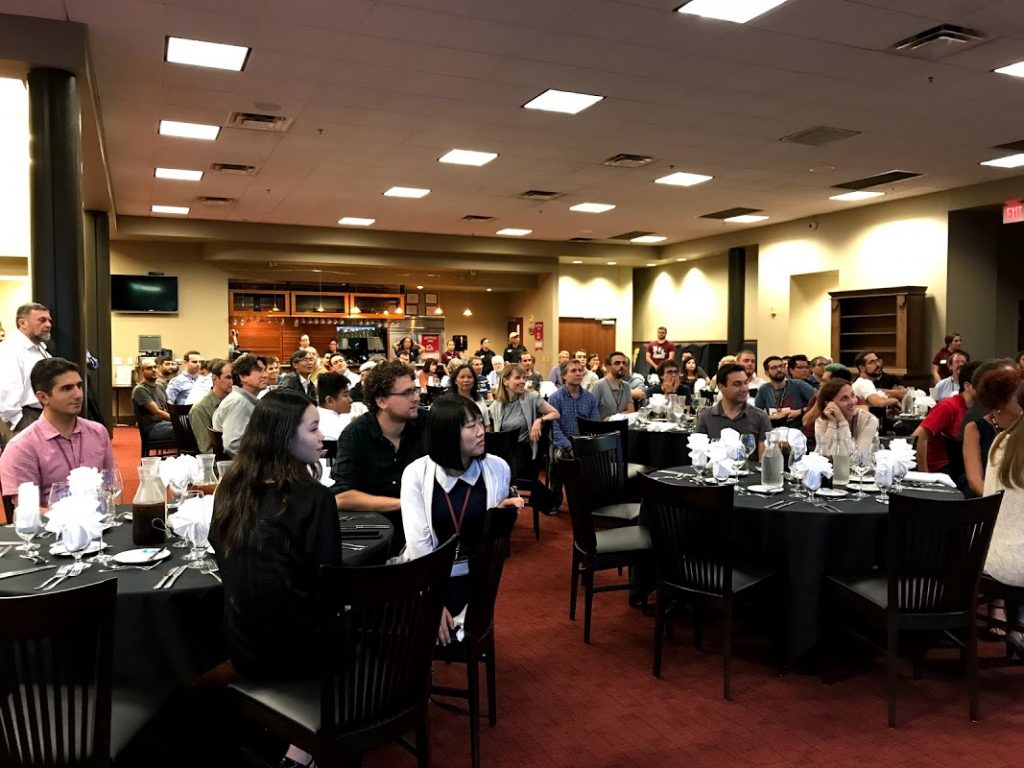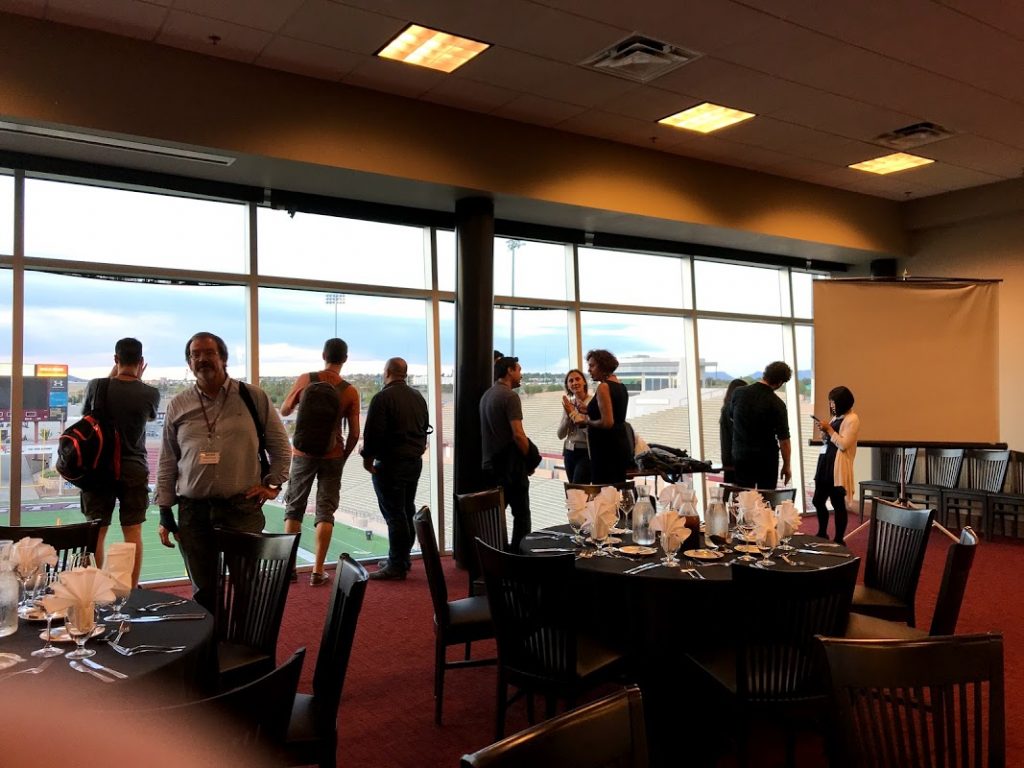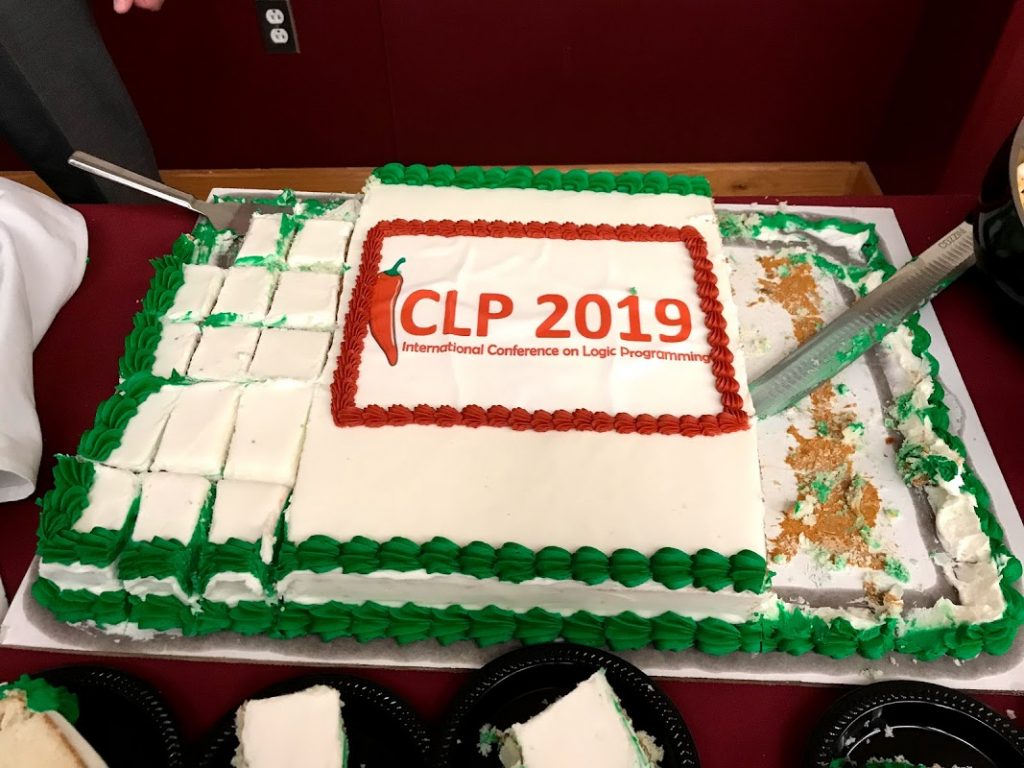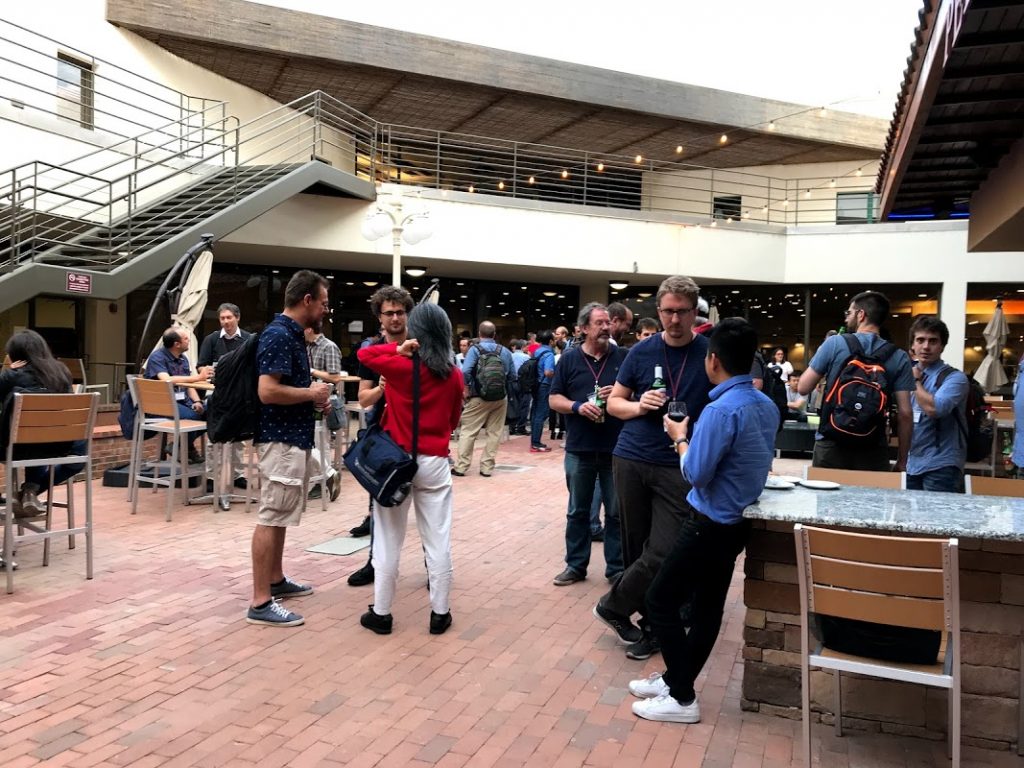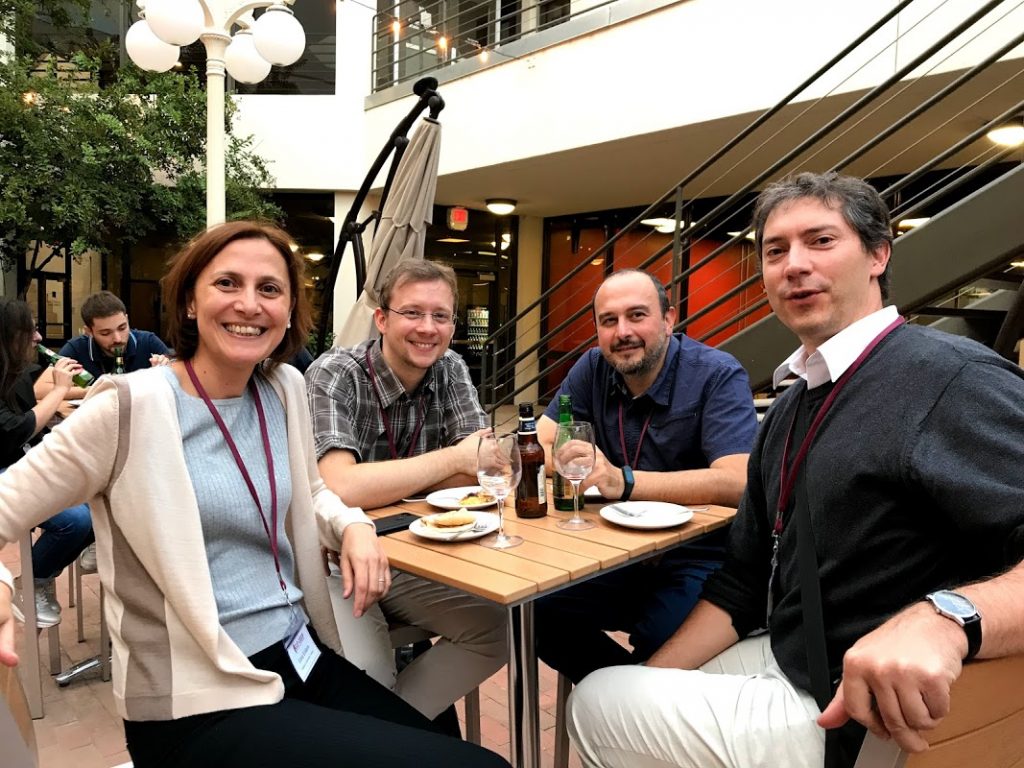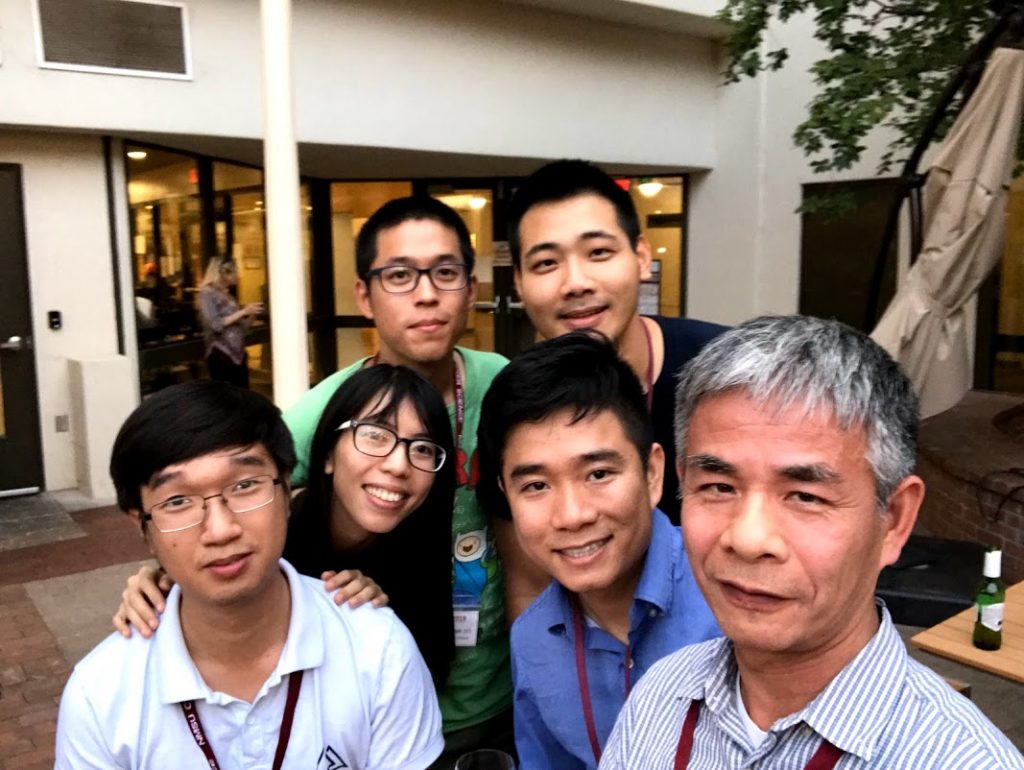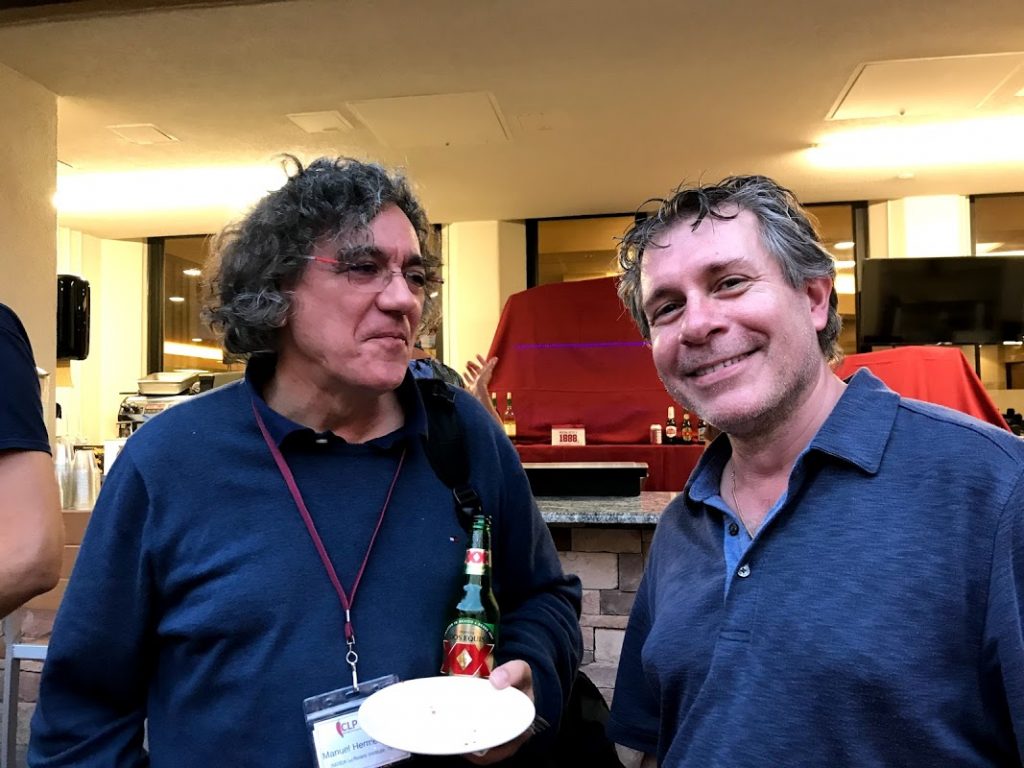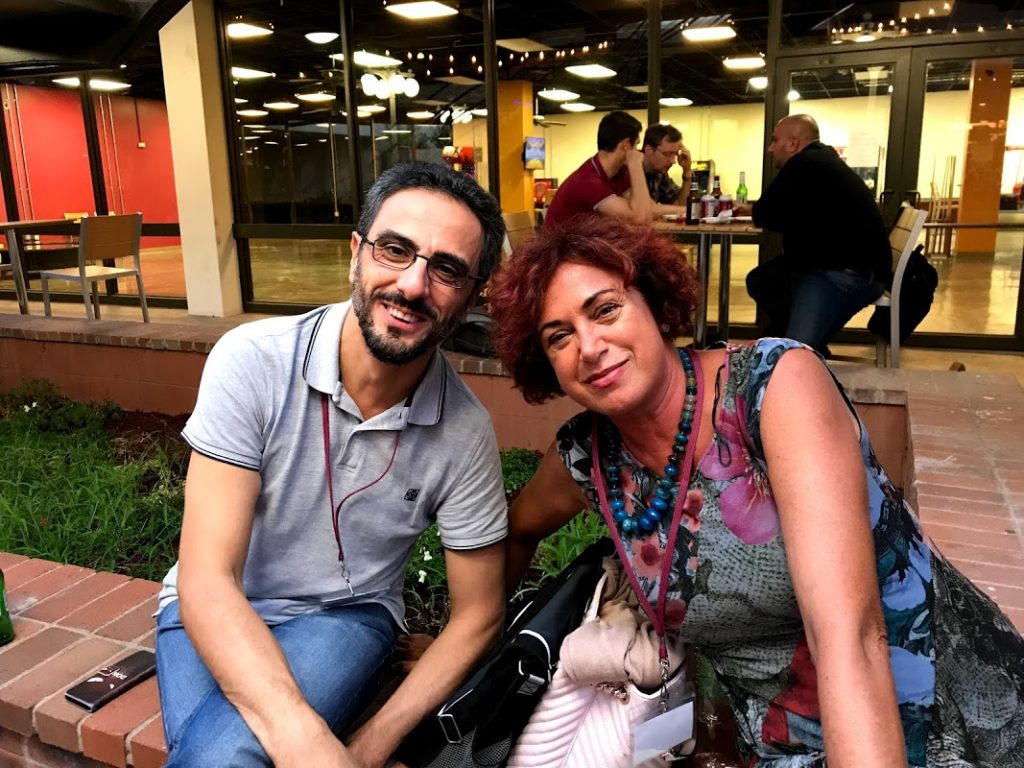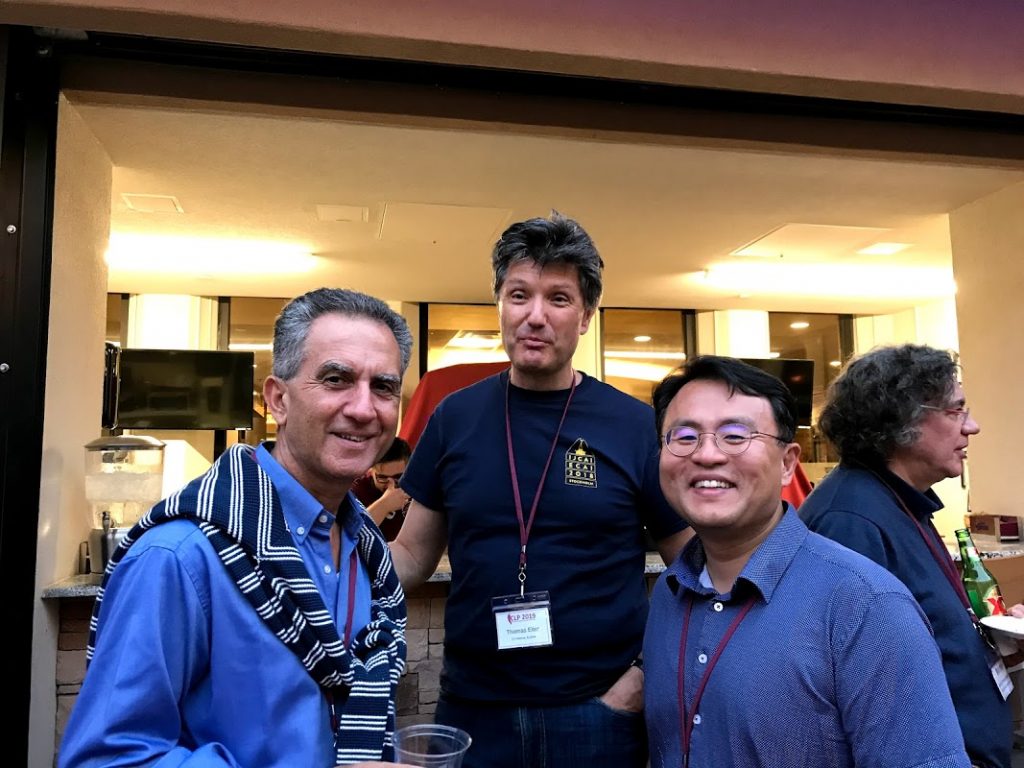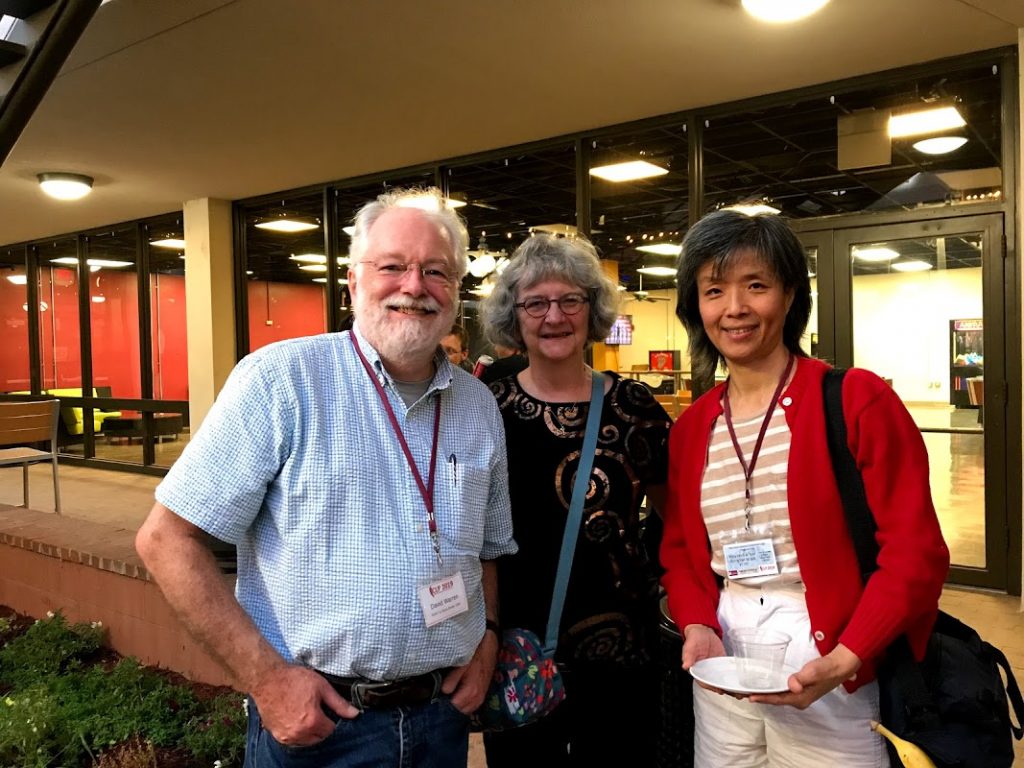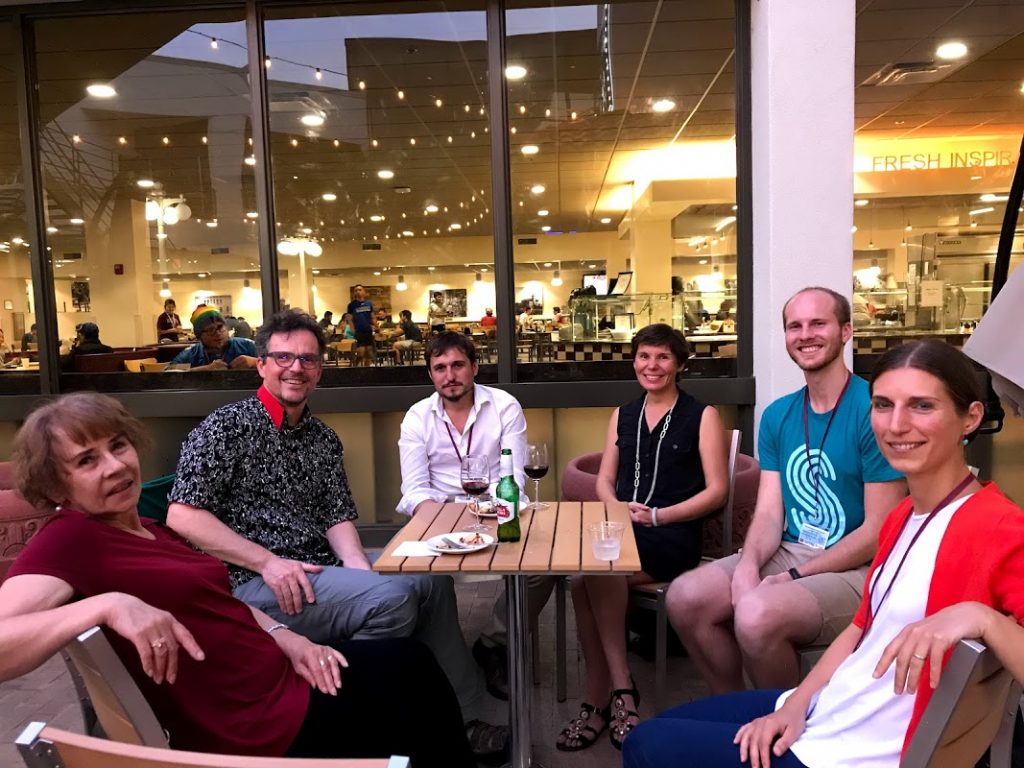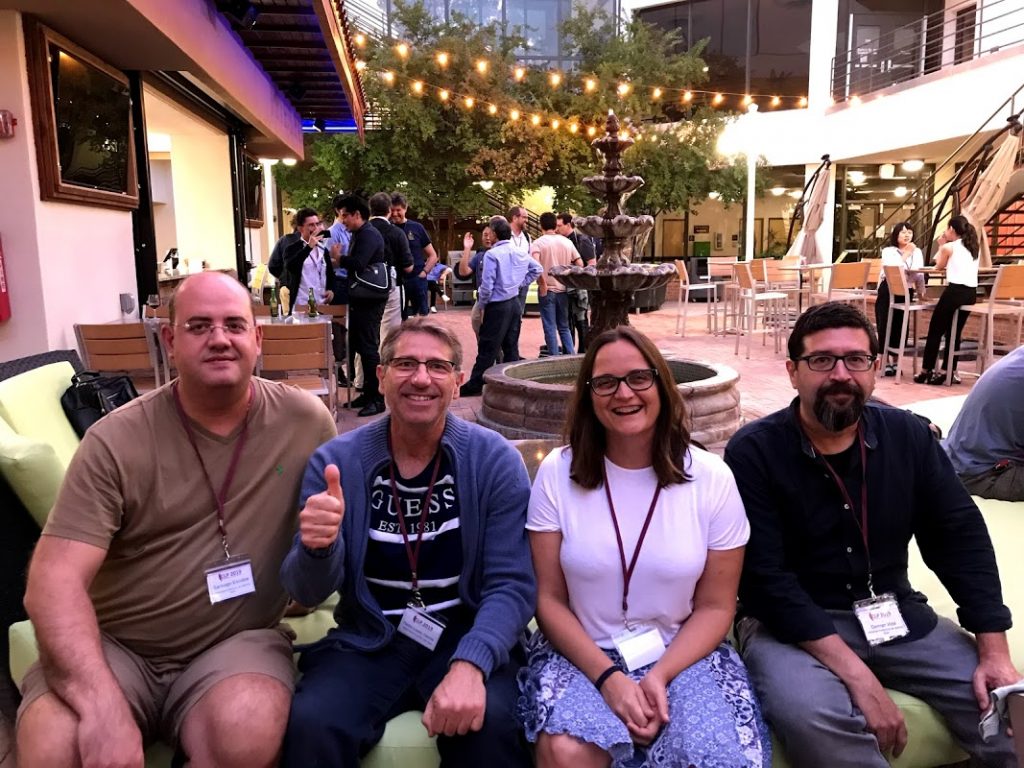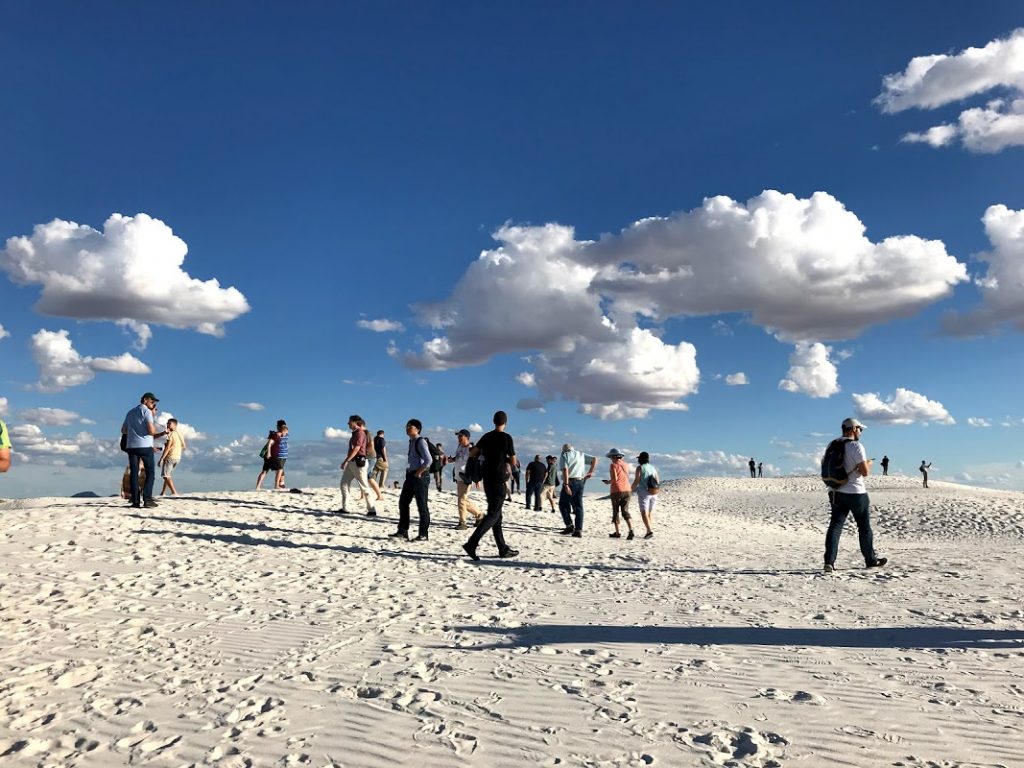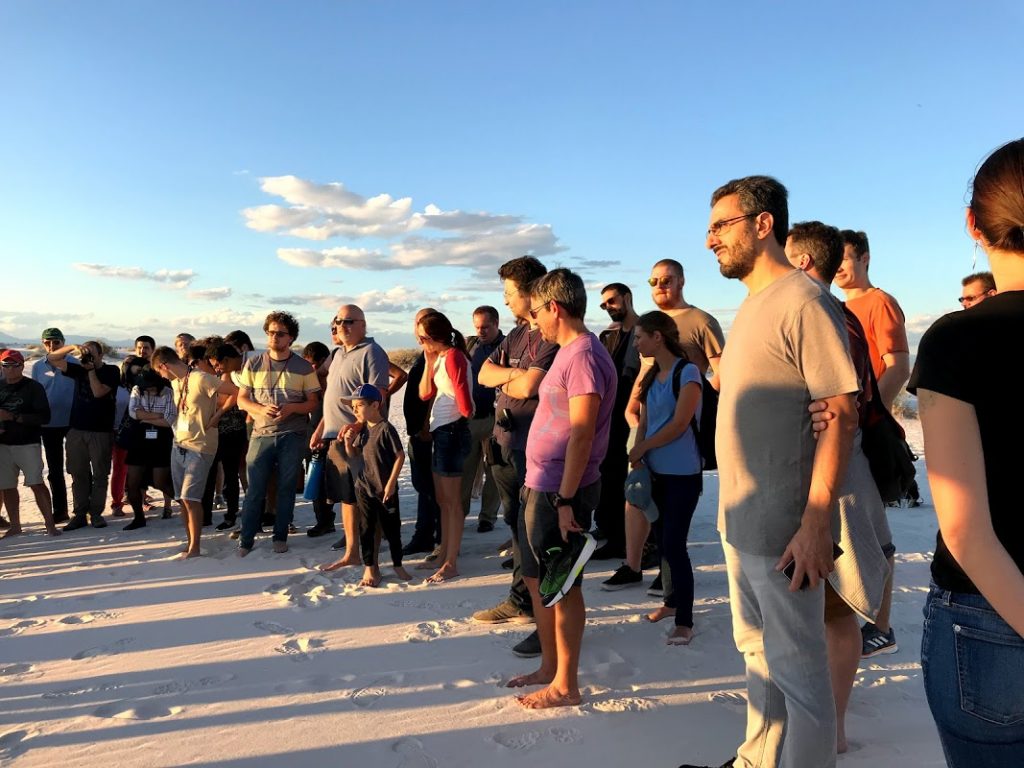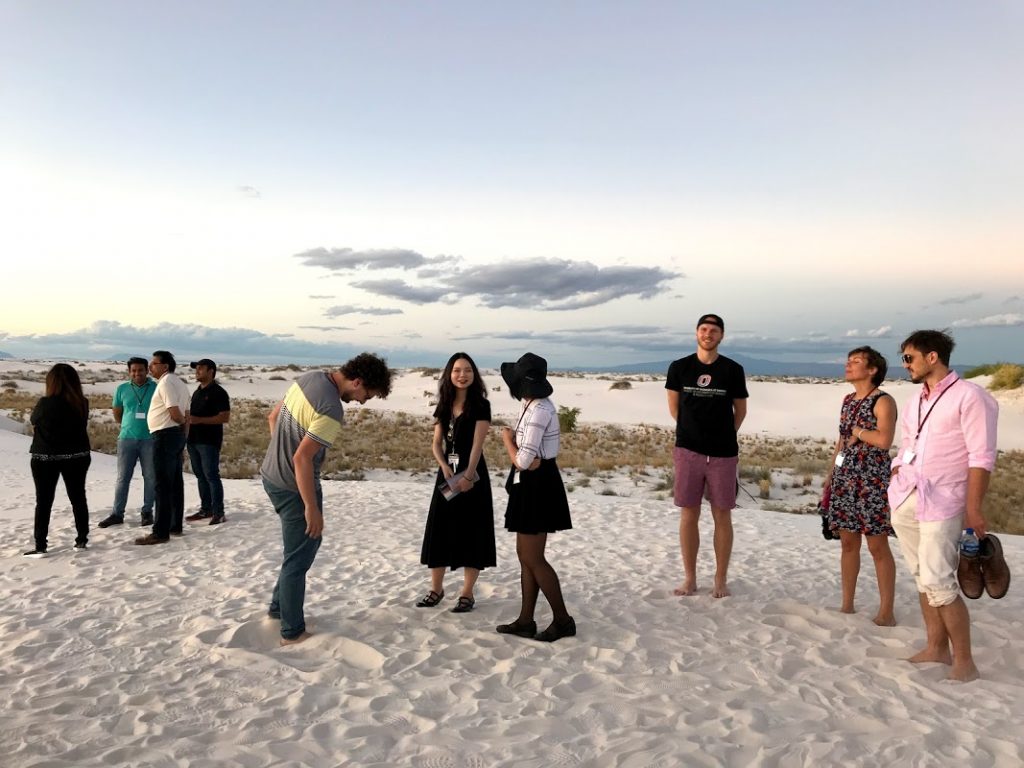By Esra Erdem and German Vidal
The 35th International Conference on Logic Programming (ICLP 2019) was held in Las Cruces, New Mexico, USA, from September 20 to September 25, 2019.
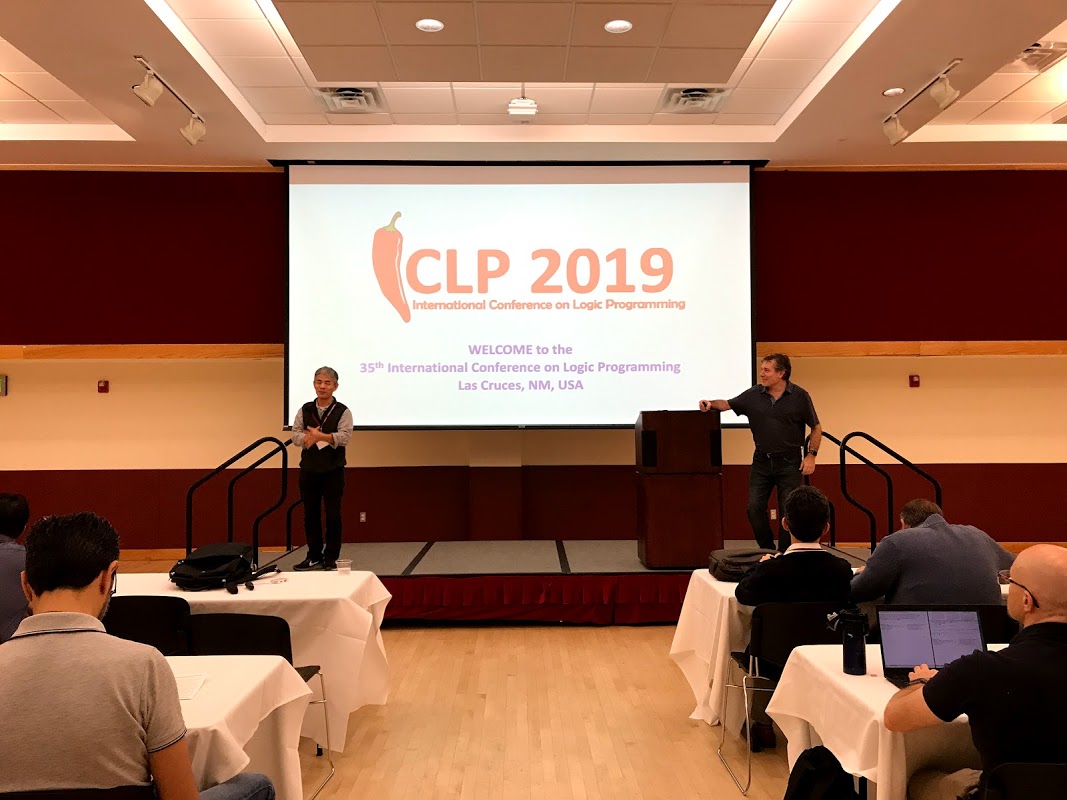
ICLP 2019 opening by the general chairs Tran Cao Son and Enrico Pontelli
Since the first conference held in Marseille in 1982, ICLP has been the premier international event for presenting research in logic programming. The scope of the conference covers all areas of logic programming including:
- Foundations: Semantics, Formalisms, Nonmonotonic reasoning, Knowledge representation.
- Languages: Concurrency, Objects, Coordination, Mobility, Higher Order, Types, Modes, Assertions, Modules, Meta-programming, Logic-based domain-specific languages, Programming Techniques.
- Declarative programming: Declarative program development, Analysis, Type and mode inference, Partial evaluation, Abstract interpretation, Transformation, Validation, Verification, Debugging, Profiling, Testing, Execution visualization.
- Implementation: Virtual machines, Compilation, Memory management, Parallel or distributed execution, Constraint handling rules, Tabling, Foreign interfaces, User interfaces.
- Related Paradigms and Synergies: Inductive and Co-inductive Logic Programming, Constraint Logic Programming, Answer Set Programming, Interaction with SAT, SMT and CSP solvers, Logic programming techniques for type inference and theorem proving, Argumentation, Probabilistic Logic Programming, Relations to object-oriented and Functional programming.
- Applications: Databases, Big Data, Data integration and federation, Software engineering, Natural language processing, Web and Semantic Web, Agents, Artificial intelligence, Computational life sciences, Education, Cybersecurity, and Robotics.
Besides the main track, ICLP 2019 included the following additional tracks and special sessions:
- Applications Track: This track invited submissions of papers on emerging and deployed applications of logic programming, describing all aspects of the development, deployment, and evaluation of logic programming systems to solve real-world problems, including interesting case studies and benchmarks, and discussing lessons learned.
- Sister Conferences and Journal Presentation Track: This track provided a forum to discuss important results related to logic programming that appeared recently (from January 2017 onwards) in selective journals and conferences, but have not been previously presented at ICLP.
- Research Challenges in Logic Programming Track: This track invited submissions of papers describing research challenges that an individual researcher or a research group is currently attacking. The goal of the track is to promote discussions, exchange of ideas, and possibly stimulate new collaborations.
- Special Session. Women in Logic Programming: This special session included an invited talk and presentations describing research by women in logic programming.
The organizers of ICLP 2019 were:
- General Chairs: Enrico Pontelli, Tran Cao Son, New Mexico State University
- Program Chairs: Esra Erdem, Sabanci University, Germàn Vidal, Universitat Politècnica de València
- Publicity Chair: Ferdinando Fioretto, Georgia Institute of Technology
- Workshops Chair: Martin Gebser, University of Klagenfurt and Graz University of Technology
- Tutorials Chair: Pedro Cabalar, University of Corunna
- DC Chairs: Paul Fodor, Stony Brook New York, Daniela Inclezan, Miami University
- Programming Competition Chairs: Josè Morales, IMDEA Software Institute, Orkunt Sabuncu, TED University
- Applications Track Chairs: Andrea Formisano, Università di Perugia, Fangkai Yang, NVIDIA Corporation
- Sister Conferences and Journal Presentation Track Chairs: Bart Bogaerts, Vrije Universiteit Brussel, Giovambattista Ianni, Università della Calabria
- Research Challenges in Logic Programming Track Chairs: Alessandro dal Palù, Università di Parma, Amelia Harrison, University of Texas at Austin and Google Inc., Joohyung Lee, Arizona State University
- Women in Logic Programming Special Session Chairs: Alicia Villanueva, Universitat Politècnica de València, Marina De Vos, University of Bath
Three kinds of submissions were accepted:
- Technical papers for technically sound, innovative ideas that can advance the state of logic programming.
- Application papers that impact interesting application domains.
- System and tool papers which emphasize novelty, practicality, usability, and availability of the systems and tools described.
ICLP implemented the hybrid publication model used in all recent editions of the conference, with journal papers and Technical Communications (TCs), following a decision made in 2010 by the Association for Logic Programming. Papers of the highest quality were selected to be published as rapid publications in this special issue of TPLP. The TCs comprise papers which the Program Committee (PC) judged of good quality but not yet of the standard required to be accepted and published in TPLP as well as extended abstracts from the different tracks and dissertation project descriptions stemming from the Doctoral Program (DP) held with ICLP.
We have received 122 submissions of abstracts, of which 92 resulted in full submissions, distributed as follows: ICLP main track (59), Applications track (9 full papers and 9 short papers), Sister Conferences and Journal Presentation track (11), and Women in Logic Programming session (4). The Program Chairs organized the refereeing process, which was undertaken by the PC with the support of external reviewers. Each technical paper was reviewed by at least three referees who provided detailed written evaluations. This yielded submissions short-listed as candidates for rapid communication. The authors of these papers revised their submissions in light of the reviewers’ suggestions, and all these papers were subject to a second round of reviewing. Of these candidates papers, 30 were accepted as rapid communications, appeared in the TPLP SPECIAL ISSUE 19(5-6).
In addition, the PC recommended 45 papers to be accepted as technical communications, appeared in Electronic Proceedings in Theoretical Computer Science (EPTCS) 306 either as full papers or extended abstracts, of which 44 were also presented at the conference (1 was withdrawn).
In addition to the presentations of accepted papers, the technical program of ICLP 2019 included four invited talks:
- Adnan Darwiche. What Logic Can Do for AI Today.
- Nicola Leone. ASP Applications for AI and Industry.
- Sheila McIlraith. Reward Machines: Structuring reward function specifications and reducing sample complexity in reinforcement learning.
- Yuliya Lierler. System PROJECTOR: An Automatic Program Rewriting Tool for Non-Ground Answer Set Programs.
and three invited tutorials:
- Chitta Baral. Knowledge Representation and Reasoning issues in Natural Language Question Answering.
- Serdar Kadioglu. Constraint Programming for Resource Management.
- Guy Van den Broeck. Tractable Probabilistic Circuits.
Furthermore, after a thorough examination of citation indices (e.g., Web of Science, Google Scholar), two test-of-time awards were identified:
- The John Alan Robinson 20 year test of time award: Frèdèric Benhamou, Frèdèric Goualard, Laurent Granvilliers, Jean-Francois Puget: Revising Hull and Box Consistency. ICLP 1999: 230-244
- The Alain Colmerauer 10 year test of time award: Martin Gebser, Max Ostrowski, Torsten Schaub: Constraint Answer Set Solving. ICLP 2009: 235-249.
In addition, the following awards were presented at ICLP 2019:
- TPLP Best student paper award: A Case for Stale Synchronous Distributed Model for Declarative Recursive Computation, by Ariyam Das (student) and Carlo Zaniolo.
- TPLP Best DC paper/presentation award: Reasoning about Qualitative Direction and Distance between Extended Objects using Answer Set Programming, by Yusuf Izmirlioglu.
- ICLP Best technical paper award: Abstract Solvers for Computing Cautious Consequences of ASP programs, by Giovanni Amendola, Carmine Dodaro and Marco Maratea.
- ICLP Best applications paper award: Applying Constraint Logic Programming to SQL Semantic Analysis, by Fernando Saenz-Perez.
- Best systems paper award: A Distributed Approach to LARS Stream Reasoning (System paper), by Thomas Eiter, Paul Ogris and Konstantin Schekotihin.
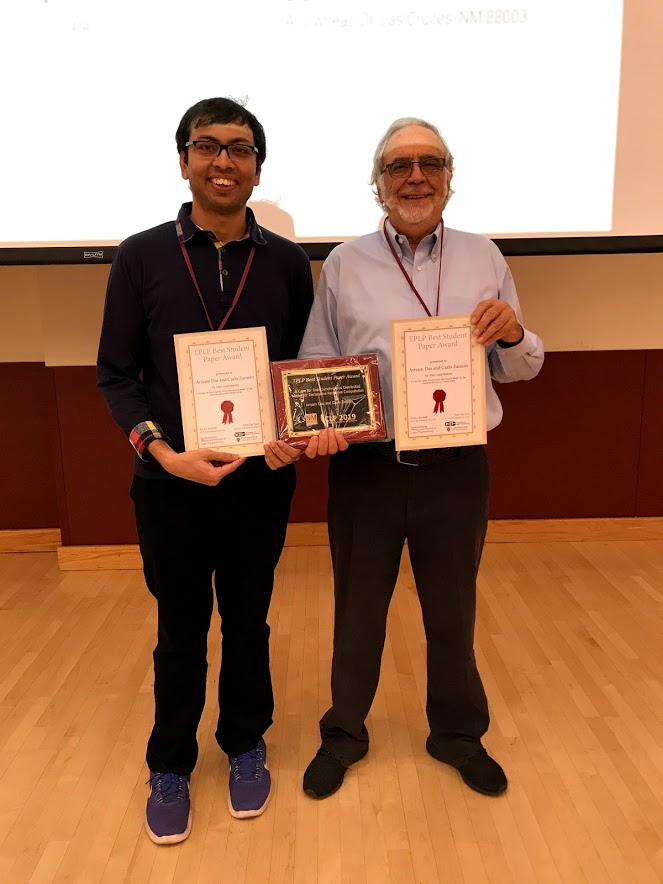
Ariyam Das and Carlo Zaniolo 
Thomas Eiter and Konstantin Schekotihin (awarded by Tran Cao Son)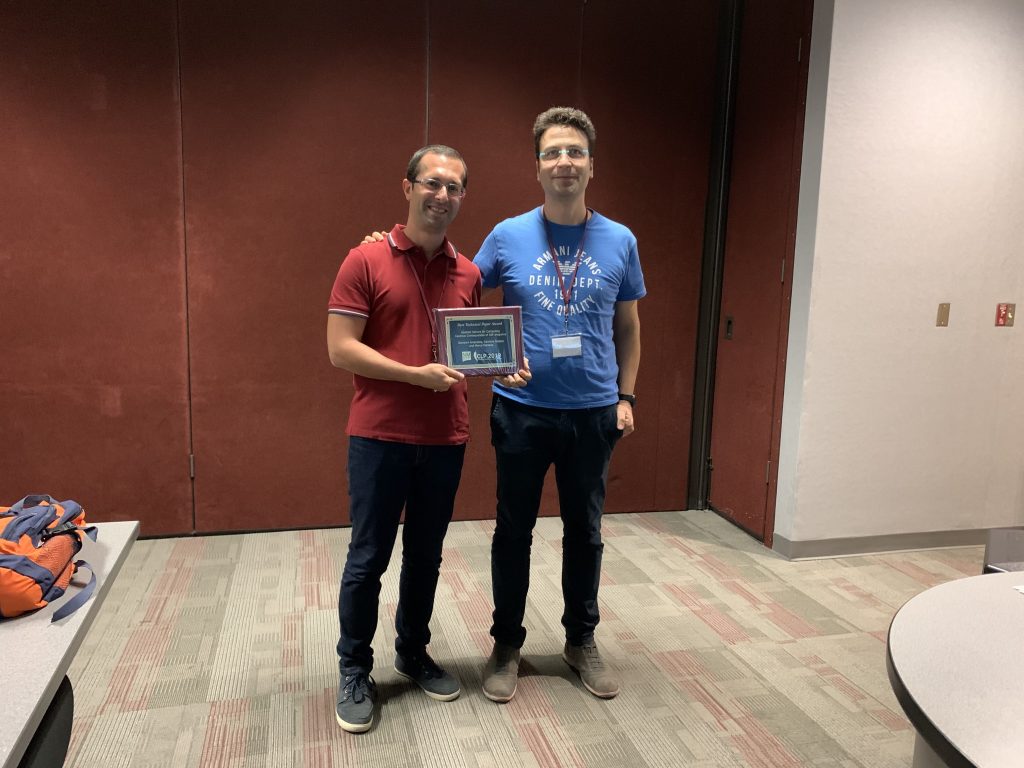
Giovanni Amendola (awarded by Francesco Ricca) 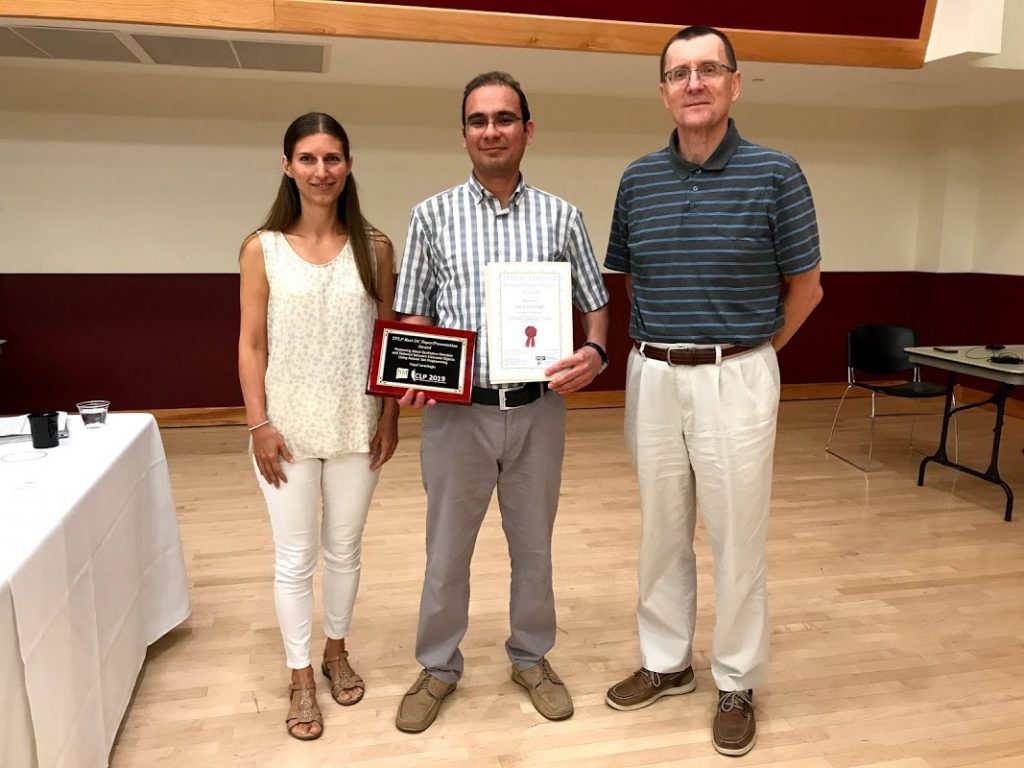
Yusuf Izmirlioglu (awarded by
Daniela Inclezan and the TPLP Editor-in-Chief Miroslaw Truszczynski)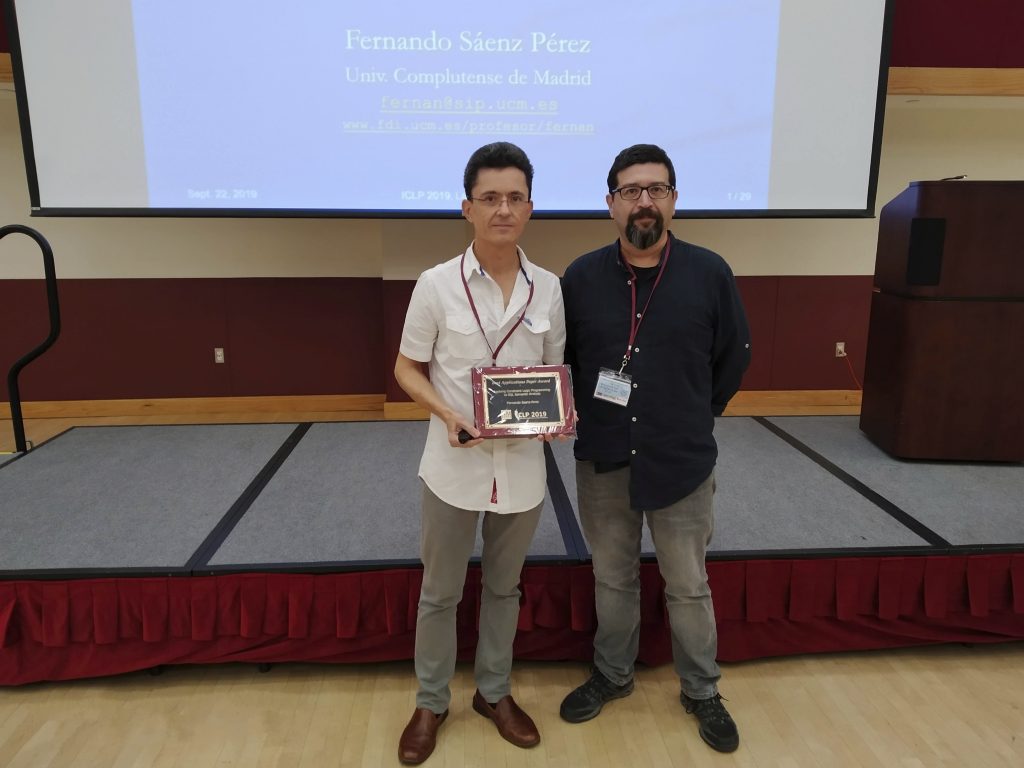
Fernando Sàez (awarded by Germàn Vidal) 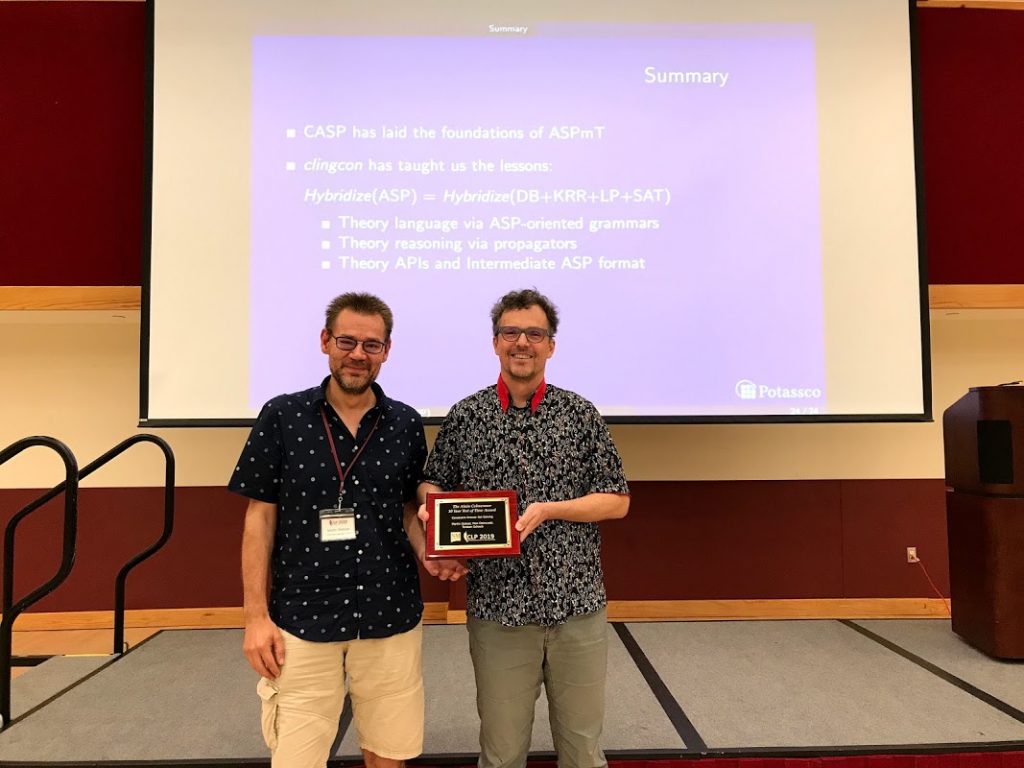
Martin Gebser and Torsten Schaub
We are deeply indebted to the Program Committee members and external reviewers, as the conference would not have been possible without their dedicated, enthusiastic and outstanding work.
The Program Committee members of ICLP 2019 were: Hassan Ait-Kaci, Mario Alviano, Roman Bartak, Rachel Ben-Eliyahu-Zohary, Bart Bogaerts, Gerhard Brewka, Pedro Cabalar, Michael Codish, Stefania Costantini, Marina De Vos, Agostino Dovier, Thomas Eiter, Wolfgang Faber, Fabio Fioravanti, Andrea Formisano, John Gallagher, Martin Gebser, Michael Gelfond, Michael Hanus, Amelia Harrison, Manuel Hermenegildo, Giovambattista Ianni, Daniela Inclezan, Katsumi Inoue, Tomi Janhunen, Angelika Kimmig, Ekaterina Komendantskaya, Vladimir Lifschitz, Evelina Lamma, Joohyung Lee, Nicola Leone, Yanhong Annie Liu, Fred Mesnard. Jose F. Morales, Emilia Oikarinen, Carlos Olarte, Magdalena Ortiz, Mauricio Osorio, Barry O’Sullivan, Simona Perri, Enrico Pontelli, Ricardo Rocha, Alessandra Russo, Orkunt Sabuncu, Chiaki Sakama, Torsten Schaub, Guillermo R. Simari, Theresa Swift, Francesca Toni, Paolo Torroni, Tran Cao Son, Alicia Villanueva, Kewen Wang, Jan Wielemaker, Stefan Woltran, Fangkai Yang, Roland Yap, Jia-Huai You, Zhizheng Zhan.
The Program Committee members of the Applications Track were: Chitta Baral, Alex Brik, Francesco Calimeri, Xiaoping Chen, Federico Chesani, Martìn Dièguez, Gerhard Friedrich, Gopal Gupta, Jianmin Ji, Gabriele Kern-Isberner, Zeynep Kiziltan, Viviana Mascardi, Yunsong Meng, Francesco Ricca, Mohan Sridharan, David Warren, Shiqi Zhang, Neng-Fa Zhou
The Program Committee members of the Special Session: Women in Logic Programming were: Elvira Albert, Stefania Costantini, Ines Dutra, Daniela Inclezan, Ekaterina Komendantskaya, Simona Perri, Francesca Toni.
Finally, the external reviewers were: Van Nguyen, Bernardo Cuteri, Dennis Dams, Anna Schuhmann, Alberto Policriti, Jessica Zangari, Vìtor Santos Costa, Arash Karimi, Joxan Jaffar, Michael Frank, Roland Kaminski, Javier Romero, Jose Luis Carballido, Christopher Kane, Emanuele De Angelis, Isabel Garcia-Contreras, Josè Abel Castellanos Joo,Wolfgang Dvorak, Vitaly Lagoon, Jannik Dreier, Philipp Wanko, Marco Gavanelli, Emanuel Sallinger, Weronika T. Adrian, Wanwan Ren, Kinjal Basu, Patrick Kahl, Marco Alberti, Gianluca Amato, Juan Carlos Nieves, Joaquin Arias, Miguel Areias, Konstantin Schekotihin, Farhad Shakerin, Nada Sharaf, Christoph Redl, Yuanlin Zhang, Yi Tong, K. Tuncay Tekle, Saksham Chand, Yan Zhang, Jessica Zangari.
The 15th Doctoral Consortium (DC) on Logic Programming was held in conjunction with ICLP 2019. It attracts Ph.D. students in the area of Logic Programming Languages from different backgrounds (e.g. theoretical, implementation, application) and encourages a constructive and fruitful advising. Topics included: theoretical foundations of logic and constraint logic programming, sequential and parallel implementation technologies, static and dynamic analysis, abstract interpretation, compilation technology, verification, logic-based paradigms (e.g., answer set programming, concurrent logic programming, inductive logic programming) and innovative applications of logic programming. This year the Doctoral Consortium accepted 12 papers (out of 15 submissions) in the areas described above. We warmly thank all student authors, supervisors, referees, co-chairs, members of the program committee and the organizing team that made the Doctoral Consortium greatly successful.
The DC Program Committee members were: Carmine Dodaro, Cristina Feier, Ekaterina Komendantskaya, Fabio Fioravanti, Francesco Ricca, Frank Valencia, Jorge Fandino, Jose F. Morales, Marco Maratea, Martin Gebser, Michael Gelfond.
In addition, the conference also included an opening reception at NMSU, a guided tour to White Sands, and a conference banquet at Stan Fulton Center with a presentation by Michael Gelfond.
PHOTO GALLERY

